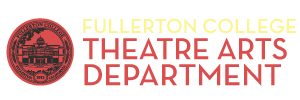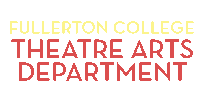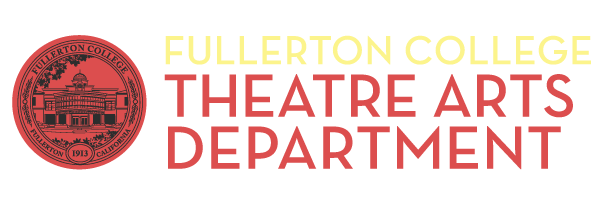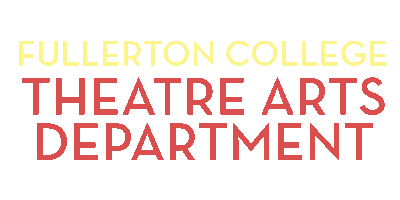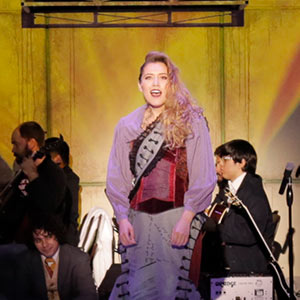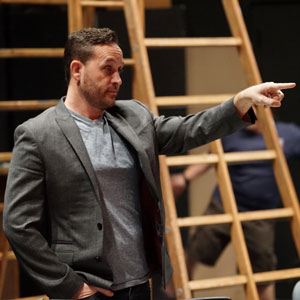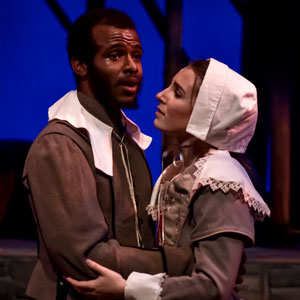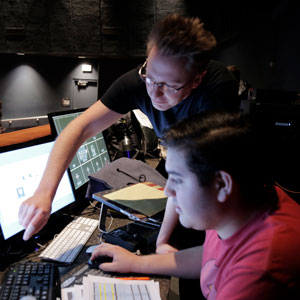Workshop '62. FJC First Experimental Theatre Project: Continues Successful Run
— Fullerton College Hornet - Henry Hoffman - Friday, June 1st, 1962This weekend and next mark
the close of a memorable season for the Fullerton Junior College Department of Drama as "Workshop '62," an experimental theatre presentation of six one-act plays, continues its successful run. And once more the ancient cycle has run its course-the mink-lined mummings called tryouts; the cold wars named rehearsals; the first nights: comedy, tragedy, farce and puppet-show, all in one; the shrill cries of the bemoaning actors that the show is dying; arid the triumphant emergence of the status quo ante.
But this year's theatre schedule has supplied the college with a unique glow that unuttered yet eloquent communication between stage and pit. Last fall the department, under the firm directorial auspices of Mr. George D. Archambeault, presented a highly and properly theatrical production of "The Visit," Friedrich Duerrenmatt's provocative picture of modem man in all his repressed guilt and sustained superficialities. The play, indeed, provided an intellectually productive and rewarding evening, despite registered dissents as to its moral subjectivity.
The Spring play, "My Three Angles," ntroduced to the department and FJC a new director Mr. George L. Stoughton. Mr. Stoughton is a democratic director who believes in teamwork and moves by persuasion rathed than by pressure. Out of this sustained effort comes understanding with the playwright, ensemble in the cast and rapport with the audience.
Now with "Workshop '62," we have the inevitable birth of experimental theater at FJC. But this college is not the only school that has. engaged in the creative process. The new education has set its stamp of approval on creative dramatics, thus opening the doors of the schools to another of the arts. Optimistic protagonists have long seen is coming-so long, indeed, that a generation of children has had time to grow up and go off to college while it was still only dimly in sight! In 1942, G. Stanley Hall wrote in his preface to Elnora Curtis's book in "The Dramatic Instinct in Education," the present seems to be the psychological moment for its appreciation and also for its utilization in education." That moment passed, and many more moments pastil even now it is only just arriving.
Two things have been happening, however. which are bringing about a most significant change in the old attitude toward dramatics for students. In the first place, the aims in education have so shifted as to give recognition to the heretofore unrealized possibilities of dramatic study. The old education had no place for dramatics. It was frill, grudgingly allowed to deck holiday attire, but no possible use for everyday wear! Mental discipline was the one important aim in the school of the last thirty years. Facts must be stored in intellectual cupboards, rules must be learned and lessons must be memorized and recited.
Along came such leaders as John Dewey, Francis Parker and William H. Kilpatrick, who declared that an education which recognized the mind alone, or even the mind and hands, was not true education. The whole student must be developed if he was to reach his maximum growth. By means of actual, first hand experience along the lines of his natural interests. they said, his capacity for creative self-expression should be developed; and at the same time he should grow in tolerant understanding of self and society.
This new idea of education, eagerly adopted by the experimental schools all .over the country, is slowly permeating the public school system. The sacred school curriculum is being scanned minutely, and subjects which have long held an established place are compelled to justify themselves or make room for others. And because dramatics is based upon a very strong natural interest, and because it has unusual possibilities for creative self-expression, its chance has come.
Coincident with this shifting of emphasis in education has come a change in the manner of teaching dramatics. Here, too, the emphasis has shifted and this change is as important as the other in accounting for the new attitude toward the subject. In place of stressing the finished production, stress the process of developing the production. If the play built by the students around "The Diary of Anne Frank" is good, so much the better. That, however, is not so important as is the growth which comes out of experience of creating the play. This change in emphasis from the exhibition to the educational has made of that has a valuable contribution to give to education.
Psychology and experience tell us that the adolescent is a highly idealistic period. At no other time, probably, is there so great an opportunity for the school to build fine attitudes and appreciations, to inspire students with a love for high standards and ideals. Now, the material and methods used in creative dramatics, dealing as they do with actions and their effects, are such as to afford a unique opportunity for character building, and a teacher of personality and ideals will find that there is scarcely a limit to the possibilities the subject offers for the education of the student. Without a suggestion of preaching, without so much as a reference· to ethics, the dramatic lesson vitalizes the gentleness of Otto Frank, the self reliance of Ulysses, the driving downfall of Macbeth.
The first three of the six onea cts will be presented this afternoon at a 3:30 matinee and again tomorrow evening at 8:15 p.m. in the College Little Theatre. The plays are: "A Sunny Morning'' by Serafin and Joaquin Alvarez Quintero-with Elnora Sanford, Dick Bell, Lana Neece, Edgardo Escobar and directed by Miss Neece; "Riders To The Sea" by John Millington, Synge--withLeslie Meadows, Barbara Hyink, Michal Newland, Dan Reed and directed by Miss Newland; "Helena's Husband" by Philip Moeller with Doug Harlon, Tom Kakos, Claudia Moonier, Dick Bell (director).
The last three will be presented June 7, 8, and 9; "Table Number Seven" by Terrence Rattiganwith Nancy Roberts, R o s a 1 i e Abrams, Gretchen Maloy, Jerry Sy, Nancy Cummings, Jim O'Toole, Lee Peck, Mary Ann Beacock, Joann Wheatley and director Henry Hoffman; "Mooney's Kid Don't Cry" by Tennessee Williams -with Ron Valcenia and Virginia Maben with staging by Edgardo Escobar; and "Fumed Oak" by Noel Coward-Robert Hoffman, Allison Miller, Carole Ewald, Peggy Menaugh and directed by Larry Ward.
No one except you, the audience, can predict the success of such a project as "Workshop '62.'' And· because of this, the student body has made available to you one free ticket with your ASB card for any of the five nights and matinee.
All regular prices are $.50 and $.25. We urge you to take advantage of this offer, for we know that "Workshop '62" will prove to be of lasting benefit for the theater goer.

